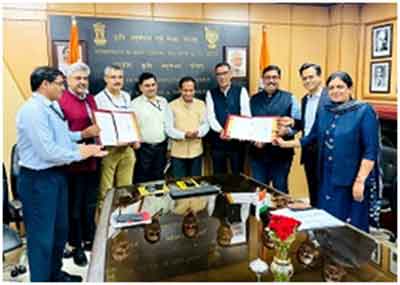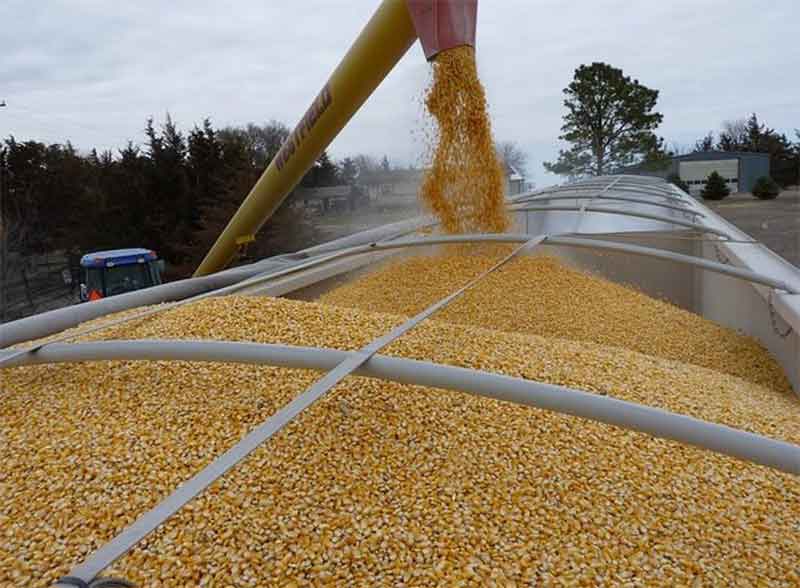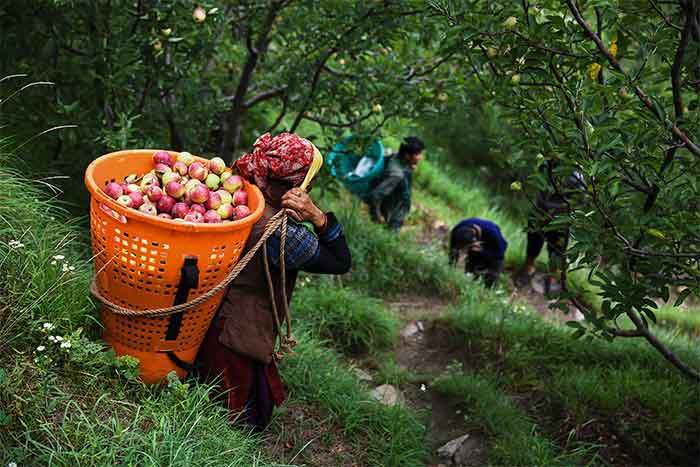
It is not too long ago that a prolonged farmers’ movement in India to resist three new laws aimed at increasing corporate control over Indian farming had captured the imagination of the country. The widespread support and sympathy for this movement eventually led to the three controversial farm laws being scrapped by the government, a move that was appreciated.
It soon started becoming clear, however, that while the three specific laws had been given up, the overall government policy of increasing corporate control over the farm sector was going ahead. In fact soon this was evident increasingly in the food-processing sector also. The government also opted for a path led by highly controversial palm oil plantations ignoring the rich heritage of several traditional oilseeds. Even more alarming has been the government policy of favoring and promoting GM food crops, a far cry from the days when the evidence-based moratorium imposed by the previous UPA government on Bt brinjal after going through a process of democratic decision-making had received worldwide appreciation. In sharp contrast, in the context of the even more important GM mustard, the government has now appeared in the role of an unabashed promoter of GM food crops, thereby increasing in unprecedented ways very serious problems for the ecologically protective and healthy growth of the farm and food sector, as the spread of GM crops and food has severe adverse impacts on environment and health, as confirmed repeatedly by many senior scientists of the highest integrity (not compromised by big corporate agribusiness interests).
However in keeping with the agribusiness led path, the government has been periodically making scattered announcements in favor of natural farming and ecologically protective farming, ignoring the fact that this cannot co-exist with GM crops and corporate-led farming path which invariably promotes hazardous agro-chemicals as well. Hence what we have seen in recent times is that the government has been trying to somehow dress up ecologically harmful corporate-led model of farming as a model that is ecologically sustainable and good for farmers. In this attempt it is able to draw from the wider efforts being made at the global level by big corporate interests to present a false picture of the kind of farming and food system needed in the context of climate change mitigation and adaptation to serve their narrow interests. The position of the Indian government has been increasingly falling in line with this false propaganda of the big agribusiness multinational companies of the richest countries which often receive very significant powerful backing from their own governments as well. Some of the most senior learned and distinguished scientists of India including Dr. Pushpa Bhargawa and Dr. R.H. Richharia had clearly warned against these tendencies as being very harmful for the country.
The recent MoU signed between the giant agribusiness multinational company Bayer (which became bigger after the merger of Monsanto) and the ICAR (the Indian Council of Agricultural Research) should be seen to be in keeping with this wider trend and taking it forward further. We should save our most important crops like rice in particular from such trends. Earlier there have been important movements in Chattisgarh to protect rice biodiversity from being captured by big agribusiness and seed multinational companies.
Surely the government must be aware of the billions of dollars involved in legal cases and the huge payments being made to settle them by the Bayer-Monsanto combine for ignoring health- hazard warnings. The proper role of the government in India should be to ensure that here people should avoid exposure to such hazards and where they have been unfortunately exposed already they should be duly compensated for this.
Instead of performing such a proper role the government goes ahead to sign agreements with those agribusiness interests which are most responsible for creating serious hazards in farming ad food sector! If the government wants to collaborate for eco-friendly farming with western countries, then there are several agencies within western countries that are doing some genuinely good work for ecologically protective farming and with whom the government can inter-act and collaborate. In fact foreign collaboration is not a big need at all in this context as the know-how for ecologically protective, safe, low-cost and self-reliant farming in keeping with local conditions (which must anyway be a highly decentralized effort) is certainly available within the country and several farmers including small farmers and women farmers have been giving wonderful results. All that the government needs to do it to sincerely give a helping hand in the right spirit for such efforts and spend its farm budget in such a way that the budget goes mainly to promote priorities of ecologically protective farming. It can be stated very loud and clear that to promote the cause of ecologically protective farming, we do not have anything to learn or gain from Bayer or the likes of Bayer. We are fully self-reliant as far as spread of ecologically protective farming and safe food are concerned, although in the true spirit of learning, we should always be willing to learn from any farmer or scientist anywhere in the world who is sincere and honest in contributing to ecologically protective farming.
Bharat Dogra is Honorary Convener, Campaign to Save Earth Now. His recent books include India’s Quest for Sustainable Farming and Healthy Food, Man over Machine (Mahatma Gandhi’s ideas for our times), Protecting Earth for Children) and When the Two Streams Met ( India’s freedom movement).















































